|
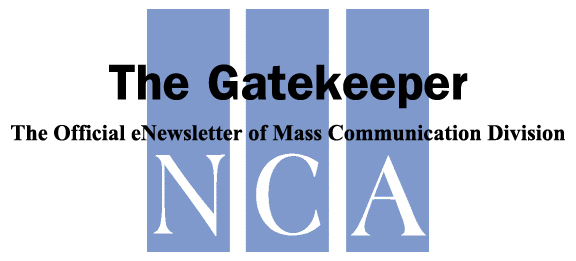
<<click here for archives >>
Vol. 17, No. 2
June/July 2012
Published three times annually by the Mass Communication Division of NCA.
Publications/Web Editor - Nicholas David Bowman, West Virginia University
--- Join NCA's Twitter Feed at http://twitter.com/NatComm ---
-- MCD on Facebook! Click on the Facebook image below to join our group --

364 MCD Facebook Friends and growing strong...join today!
|
Thanks to Great River Technologies for their continued sponsorship of the Mass Communication Division website.
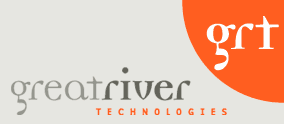
Visit their website at
www.greatrivertech.net
|
|
In this issue:
Welcome from the Chair
Youngstown, OH -- I'm excited to share with you a unique event for MCD members at the
2012 Orlando convention. Our division has partnered with the NCA-Forum
and the NCA Research Board to help bring this event to life.
The program, “What Just Happened? Call and Response on the 2012
Election,” will bring together communication scholars from various
divisions to deliberate on what the experience of 2012 election cycle
tells us about themes and concepts pertinent to communication
scholarship. This deliberation will pivot around interactive exchanges
that pair 5-7 pre-recorded, 4-minute videos created by NCA scholars
with short responses by a prominent commentator.
One of those pre-recorded videos will come from our division. The
high-profile commentators will record a short video response, and
possibly join the convention deliberations.
The NCA-Forum and the Research Board has asked our division to build
momentum for the event by holding our own selection contest (from
late-July to mid-September 2012) that will result in one exemplary
video selected for the convention. In fact, I'm working on a plan to
have all submissions available for view on a MCD YouTube channel.
Our division, with its outstanding web presence, active membership,
and strong topical connection to the program theme, seemed like an
excellent fit. Also, the robust scholarly profile of our division, I
believe, sets us apart from many other divisions. Additionally, the
follow-up requirement for the program requires drafting a short
reflection paper that shares commentary on the challenges and choices
in making the video.
The vision of the NCA-Forum is that when edited and bundled together,
these papers will form the backbone of a special forum feature to be
published in a leading scholarly journal.
In the coming weeks, you will be hearing more about MCDs version of
this contest, its deadlines and rules. The NCA-Forum and Research
Board have asked us to design, promote, and execute our own contest,
with members on their end playing only a supporting role. As chair, I
have agreed to lead this charge.
Draft criteria for video submissions will likely include:
- Inventive substance. The NCA-Forum is looking for contributions
that enhance our understanding of a particular dynamic related to each
invited division in the 2012 electoral cycle. Videos should draw on
research from Communication, but focus on translating those insights
to wider, non-specialist audiences. They are seeking contributions
that move beyond talking points, partisan perspectives, and
conventional interpretations by introducing ideas that stimulate new
ways of deliberating about the import of the 2012 elections.
- Distinct division perspective: Videos should highlight a
perspective/method that is distinct from other NCA divisions. This
could include connections to curricular integration. For instance, the
video submission from organizational communication might draw from a
different perspective than the video from political communication, of
the MCD.
- Creative technical production. The NCA-Forum is also looking for
contributions that draw on the multimedia capabilities of internet
video in creative ways. Videos should avoid a sustained shot of one "talking head" seated in their office. Instead, contributions should
strive to animate the video through visual aids, dramatizations,
dialogues, or debates, news media clips, and music. Videos should be
no more than 4 minutes in length and should feature strong editing and
technical production.
The MCD selection committee will be comprised of the division chair
(yours truly) and four additional at-large members. If you are
interested in serving on this selection committee, please email me
directly at acearnheardt@ysu.edu.
Once again, information (the Call) about this contest will be coming
within the next two weeks. I hope many of you will take full advantage
of this opportunity.
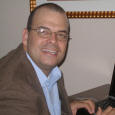 Adam C. Earnheardt Adam C. Earnheardt
Chair, Mass Communication Division
Youngstown State University
acearnheardt@ysu.edu
Facebook - www.facebook.com/adamearn
Twitter - twitter.com/adamearn (@adamearn)
<<back to
top>>
Call for 2012-2013 MCD Award Nominations
Columbia, MO -- Nominations for the MCD Teacher and Scholar awards are now being accepted by the Division. We encourage nominations, including self-nominations, for both of these awards from the membership. Nomination information about each award can be found using the following links:
Start Applications Here
Deadline: September 30, 2012
|
|
|
A list of past award winners can be viewed here, and further questions about the awards or the nomination process should be directed to Jennier Stevens Aubrey using the contact information below.
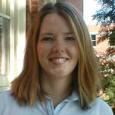 Jennifer Stevens Aubrey Jennifer Stevens Aubrey
Vice-Chair Elect, MCD
University of Missouri-Columbia
aubreyj@missouri.edu
(573) 882-0739
<<back to
top>>
Call for 2012-2013 MCD Officer Nominations
Louisville, KY --
Want to be more active in the Mass Communication Division of the National Communication Association? Submit your name for nomination!
The Mass Communication Division of the National Communication Association is gathering names of those members who are interested in being nominated for open positions. If you submit your name it will appear on the ballot at our next meeting in Orlando. Elections will take place at this time. Please send nominations to Siobhan Smith (siobhan.smith@louisville.edu). Please consider self-nomination. Remember, only members of the MCD of NCA are eligible to serve. The following list details the positions for which we are accepting nominations and a brief description of the positions.
NOTE: Names submitted for Vice-Chair Officer Elect and Secretary Elect are not nominations, they are for the consideration of the committee which will make the final nominations for these positions.
- Vice-Chair Elect (4 years of service): In the first year of service the Vice-Chair Elect will oversee the teaching and service awards. In the second year the Vice-Chair Elect becomes the Vice-Chair and he/she must attend the program planning meeting at NCA, distribute the call for papers, and plan the program (with assistance from others in the organization). The Vice-Chair must also represent the MCD on the Legislative Council. The Vice-Chair Elect then becomes the Chair and must preside over MCD business meetings and at Executive Committee meetings and represent the MCD on the Legislative Council. In the final year of service he/she will serve as Immediate Past-Chair and represent the MCD on the Legislative Council and act as an adviser to the Chair.
- Secretary Elect (2 years of service): The Secretary Elect records notes and election results during the MCD business meeting. He/she is also responsible for distributing these notes after they have been approved. The Secretary Elect then becomes the Secretary who is responsible for distributing notes at the MCD meeting and formally presenting the notes at the meeting.
- Vice Chair Elect of Research Committee / First Year Member of Research Committee (4 years of service, 3 year term on Research Committee, one year on Nominating Committee): The Research Committee's Vice-Chair elect will serve as Vice Chair in his/her second year and Chair in his/her third year. Additionally after the third year this person will become a member of the Nominating Committee. The purpose of the research committee is to coordinate the evaluation of competitive papers submitted to the Division for the annual convention, to plan the section meetings of the annual convention that are devoted to research in Mass Communication and to coordinate and promote the research activities of the Division.
- Graduate Student Representative (1 year term): The Graduate Student Representative will represent the Division at any meetings held by the Association in which graduate student interests are discussed and in which graduate students are invited to participate.
- Representative to NCA Nominating Committee (1 year term): This person will represent the MCD on the Association's Nominating Committee which prepares a slate consisting of two or more nominees for the office of Second Vice President and two or more nominees for each at-large position vacant on the Legislative Assembly and the Committee on Committees. NCA officers and members who have served on the NCA Nominating Committee during the previous five years are not eligible to serve in this position.
- Legislative Assembly Representative (2 year term): This person will attend the Association's annual Legislative Assembly meetings and represent the interests of the Division at those meetings, record the proceedings from these meetings, and report a summary of those proceedings at the annual business meeting.
- Nominating Committee of the Division (3 positions, 2 year terms): This committee is responsible for presenting a slate of potential candidates to the membership during the business meeting. They also hand out, collect, and count ballots. The nominee who receives the most votes will be chair of the committee and therefore a member of the Executive Committee. Several positions are members of the Executive Committee, please note the additional requirements of these positions. Executive Committee Positions Vice-Chair Elect of Research Committee in three years Vice-Chair Officer Elect.
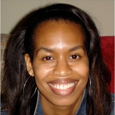 Siobhan Smith Siobhan Smith
Nominations Committee
University of Louisville
siobhan.smith@louisville.edu
(502) 852-6976
<<back to
top>>
UMass-Boston Forms New Department of Communication
Boston, MA -- The University of Massachusetts Boston is pleased to announce the formation of a new Department of Communication within the College of Liberal Arts. The announcement also signals the establishment of a new major and minor in Communication, specializing in a behavioral science approach to mediated, interpersonal, intercultural, and organizational communication. Key areas of research emphasis include health communication across diverse populations, media access and effects, organizational diversity, and new media technologies.
Joining the new department this fall will be Assistant Professor Gamze Erturk (PhD, University of Texas) and Assistant Professor Lin Zhu (PhD, University of Maryland). They will join Assistant Professor Jessie Quintero Johnson (PhD, University of Illinois) and Associate Professor and Chair Ken Lachlan (PhD, Michigan State University). The department expects to continue to grow in the near future. Please direct any inquiries concerning the department or our new undergraduate programs to Martin Hansen at martin.hansen@umb.edu or (617) 287-3900.
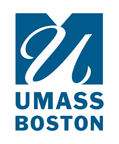
<<back to
top>>
King's College Students Win Undergraduate Research Award
Wilkes-Barre, PA -- King’s College mass communications majors Michael Deegan and Kimberly Sharkey presented their research on social media at the Conference for Undergraduate Research in Communication held at Rochester Institute of Technology (RIT) in New York.
The research paper, titled “Social Media Advertisements and their Effect on the Consumer Decision-Making Process,” received “Top Conference Paper” and was published in conference proceedings.
The students completed the research paper as a requirement for Research Methods for Mass Communications course during the fall 2011 semester.
The Conference for Undergraduate Research in Communication featured research by nearly 300 undergraduate scholars representing 27 colleges and universities in New York, Pennsylvania, Massachusetts and Virginia.
This release was provided by King's College Public Relations office. For the original story, visit http://www.kings.edu/news_and_events/rit_conference
 |
| Two King’s College mass communications majors received “Top Conference Paper” at the Conference for Undergraduate Research in Communication. Pictured from left are: Dr. Rudy Pugliese, graduate director, Communication & Media Technologies at RIT; award recipients Kimberly Sharkey and Michael Deegan; and Dr. Michelle Schmude, chair, Mass Communications at King’s College. |

<<back to
top>>
Acceptance Journeys project receives $514K grant to reduce anti-gay stigma in Milwaukee
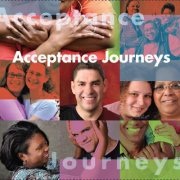 Madison, WI -- A four year, $514,000 grant has been awarded to a collaborative research program involving the School of Journalism and Mass Communication at the University of Wisconsin-Madison, Diverse & Resilient, a nonprofit organization devoted to the healthy development of LGBT people in Wisconsin, The Department of Health Services AIDS/HIV Program Wisconsin and The Medical College of Milwaukee. Madison, WI -- A four year, $514,000 grant has been awarded to a collaborative research program involving the School of Journalism and Mass Communication at the University of Wisconsin-Madison, Diverse & Resilient, a nonprofit organization devoted to the healthy development of LGBT people in Wisconsin, The Department of Health Services AIDS/HIV Program Wisconsin and The Medical College of Milwaukee.
The purpose of the grant is to support the continued development and dissemination of a public communication campaign, called Acceptance Journeys, designed to influence attitudes and beliefs about LGBT people as a means to reduce anti-gay stigma.
This project is in response to a recent 125% increase in HIV diagnoses in young African American men who have sex with men in Milwaukee County and is designed to influence the social environment in which young LGBT people live as a means to reduce the HIV related risk to which they are exposed. Anti-gay stigma is associated with myriad of consequences, such as housing instability, HIV stigma, lack of adequate sex education and internalized stigma, which may in turn lead to heightened HIV risk.
The project utilizes focus group and in-depth interview methods to construct and test mass mediated messages to reduce anti-gay stigma in the African American community in Milwaukee. The grant funding will support ongoing message design research and a 3 wave, cross sectional survey in Milwaukee, St. Louis and Cleveland (for comparison purposes) to monitor public opinion and evaluate the success of campaign messages. Acceptance Journeys was launched at Milwaukee City Hall on October 11, 2011 with the support of Milwaukee Mayor Tom Barrett and Commissioner of Health Bevan Baker.
The campaign features photographs and images of LGBT people and their friends and families. Acceptance Journeys offers narratives of LGBT friends and family describing their pathways to acceptance, including trials and triumphs. Messages are currently featured through radio spots, billboards, bus wraps, backlit displays in Milwaukee Airport and in card packs distributed to numerous church and United Way sponsored agencies for training purposes.
More information about her group's work at http://wipophealthfellows.blogspot.com/2011/12/acceptance-journeys.html, and Wisconsin Magazine recently did a feature on the group, which can be read at http://www.wisconsingazette.com/milwaukee-gaze/love-storiesbreaklandmark-program-uses-personal-stories-to-combat-stigma-fueling-hiv-epidemic-among-black-youth.html.
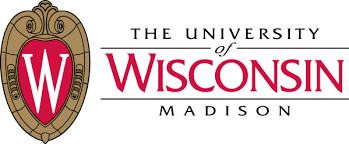
<<back to
top>>
FOR-GET: Identity, Media, and Democracy in Chile
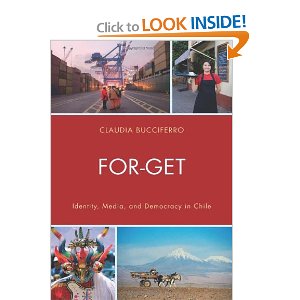 FOR-GET focuses on issues of cultural identity in Chile, a traditional country which has quickly changed with the tides of globalization and is often held up as an example of economic development in Latin America. Chile elected its first female President, Michelle Bachelet, in 2006, the same year that former dictator Augusto Pinochet died. Bachelet's term ended in 2010, just ten days after the country was hit by a major earthquake which made headlines all over the world. She was succeeded in office by a man whose election puzzled political analysts, billionaire Sebastian Pinera. The issues that were brought to the public sphere during Bachelet's government - such as gender inequality, social rigidity, and the legacy of 17 years of military rule - had not been widely addressed before, and continue to be problematic. FOR-GET focuses on issues of cultural identity in Chile, a traditional country which has quickly changed with the tides of globalization and is often held up as an example of economic development in Latin America. Chile elected its first female President, Michelle Bachelet, in 2006, the same year that former dictator Augusto Pinochet died. Bachelet's term ended in 2010, just ten days after the country was hit by a major earthquake which made headlines all over the world. She was succeeded in office by a man whose election puzzled political analysts, billionaire Sebastian Pinera. The issues that were brought to the public sphere during Bachelet's government - such as gender inequality, social rigidity, and the legacy of 17 years of military rule - had not been widely addressed before, and continue to be problematic.
This book explores these issues and their relevance for identity, while comparing media discourses with people's opinions, and finding that the ideas don't match. Official messages that focus on "achievement and success" are regarded with skepticism by people who, to a large extent, feel "trapped" by a disarticulated social realm and a ruthless economic system. These findings are important for understanding the "social discontent" that reigns in Chile, which is evident in the student movement that has recently attracted worldwide media attention. The book's title, "FOR-GET," is taken from what Augusto Pinochet told the Chilean people to do in order to leave behind a painful history of human rights' abuses. Thus, the analysis inquires into the relevance of memory and the implications of forgetting for new generations.
The author, Claudia Bucciferro, was born and raised in Chile during the military dictatorship, and witnessed firsthand the country's slow transition to democracy. She attended the prestigious University of Concepción in Chile, where she was the first female elected Vice-President of the Student Federation, before earning a fellowship to study at the State University of New York at Plattsburgh in 2001. She later got a Ph.D. in Communication from the University of Colorado at Boulder and is now a Visiting Assistant Professor at Gonzaga University in Spokane, Washington. While researching this book, Claudia traveled extensively throughout Chile doing interviews and observations, so the book presents an "inside look" at social realities not often featured in mainstream media.
Author Contact:
Claudia Bucciferro, Gonzaga University
(509) 313-3635 (office)
bucciferro@gonzaga.edu or claudia.bucciferro@colorado.edu
Publisher's Website: https://rowman.com/ISBN/9780761858959
Book ISBN: 978-0-7618-5895-9
Facebook page: https://www.facebook.com/ForGetIdentityMediaAndDemocracyInChile
<<back to
top>>
CONFERENCES AND CALLS
Call for Papers
Eastern Communication Association 2013, Pittsburgh
Deadline: October 15, 2012
Media Communication Interest Group
104th Annual Eastern Communication Association Convention
“Confluence”
Pittsburgh, Pennsylvania
Omni William Penn Hotel
April 24-28, 2013
The Media Communication Interest Group of the Eastern Communication Association invites the submission of competitive papers, thematic program/panel proposals, and innovative programming alternatives (e.g., roundtables, symposia, debates, open forums, and community programs) for the 104th annual convention of the ECA. The 2013 convention’s theme is “Confluence.” Confluence is the bringing together of ideas from various perspectives and may take place in content, media effects, technology, job roles or responsibilities, and ownership. We welcome all media communication-related submissions, but particularly encourage those that address the conference theme.
Downtown Pittsburgh itself emerged where the confluence of the Allegheny and Monongahela Rivers forms the Ohio River. “Confluence” is exemplified by the long tradition of communication research bringing together ideas from various perspectives of communicator, message, channel, and context to better understand how humans create meaning and relationships. “Confluence” also describes the best in our interdisciplinary scholarship. Given this year’s convention theme, co-sponsorship of panels between interest groups is especially encouraged where scholarship builds on convergence between traditions.
The Convention, as always, features panels, roundtables, short courses, and programming on the Convention theme. In addition, the biennial Basic Course Conference will take place on Wednesday (April 24th) and the Third Annual James C. McCroskey and Virginia P. Richmond Undergraduate Scholars Conference (USC) will run concurrently with the ECA convention on Friday and Saturday (April 26-27). USC papers will be accepted through December 19, 2012 to enable scholarly student papers from the fall semester to be submitted and should be submitted to that division.
Submissions to the Media Communication Group should adhere to the following guidelines:
COMPETITIVE PAPERS
Authors are invited to submit competitive papers on any aspect of media communication from any theoretical, methodological, or critical perspective. Excluding title page, notes, and references, papers should be no longer than 25 pages. Papers longer than 25 pages may not be reviewed.
Authors who have not presented a paper at a regional, national, or international convention should include the word "DEBUT" in the upper right-hand corner of the title page. Papers authored by current undergraduate or graduate students should include the word "STUDENT" in the upper right-hand corner of the title page. (All of the paper's authors must meet the "debut" or "student" criterion for the paper to be so designated.)
Competitive papers should be submitted via e-mail as TWO MS Word files.
File #1 must include:
- A title page with the title of the paper and the following information: names of all authors (in cases of multiple authorship, please indicate who will be presenting at the convention), institutional affiliations, mailing addresses, telephone numbers, and email addresses.
- An abstract page including a 100-150 word abstract of the paper. The title of the paper should appear on the same page as this abstract.
- A statement of professional responsibility, as follows: "In submitting the attached paper, I/We recognize that this submission is considered a professional responsibility. I/We agree to present this paper if it is accepted. I/We further recognize that all who attend and present at ECA's annual meeting must register and pay required fees." Papers that do not include this statement will not be programmed.
- The full paper and reference pages, appendixes, etc.
File #2 must include:
- A title page with no author/s names (the second paper which will be sent out for review should include no information that identifies the author/s anywhere in this submission).
- An abstract page (see above).
- A statement of professional responsibility (see above).
- The full paper and reference pages, appendixes, etc.
PANELS AND OTHER PROGRAMS
Panels should focus on a unifying theme relevant to research, theory, or criticism in the area of media communication. Panels themes should attempt not to repeat session topics from past conferences. Panels are encouraged to include presenters from more than one institution. Panels must consist of a chair, paper presenters, and a respondent. Panels and other programs that could be co-sponsored with other interest groups are strongly encouraged - please send your panel to both interest groups at the same time so that those planners may manage the submission together. Please note in your email your intention to have the panel co-sponsored if that is your plan.
Panel and other program proposals should include the following:
- A thematic title for the program
- Names of the chair and respondents, if any. Please do not have chairs act as respondents.
- Names, mailing addresses, telephone numbers, email addresses, and institutional affiliations of all participants.
- Titles and abstracts for each paper or presentation
- A program copy (of NO MORE than 75 words description of the panel) as it should appear in the final program
- A detailed rationale for the program/panel
- A statement of professional responsibility “In submitting the attached paper, I/We recognize that this submission is considered a professional responsibility. I/We agree to present this paper if it is accepted. I/We further recognize that all who attend and present at ECA's annual meeting must register and pay required fees.”
Requests for Technology must be made at the time of submission and we will attempt to make arrangements as resources allow. Any requests made after that time cannot be honored.
Conference Absenteeism: Attendees who do not present scheduled papers should not list presentations on academic vitas. Presenters unable to attend the conference after being notified of their acceptance and presenters with last minute emergency issues preventing attendance should notify the planner as soon as possible and consider alternative presentation arrangements.
Electronic Filing Formats: Proposals must be submitted only in MS WORD. Only electronic submissions will be reviewed. Submissions should be e-mailed to C. Leigh Nelson, the Media Communication Interest Group program planner, at ecamasscomm2013@gmail.com.
Submissions must be received no later than Monday, October 15, 2012. Questions can be addressed to C. Leigh Nelson at ecamasscomm2013@gmail.com
<<back to
top>>
CALL FOR PAPERS
Argumentation and Advocacy
Special Issue:
Political Campaign Debates in the 2012 Elections; Mitchell McKinney, Guest Editor
Deadline: January 15, 2013
Argumentation and Advocacy: The Journal of the American Forensic Association invites submissions for a special issue devoted to political campaign debates during the 2012 election cycle. Studies may examine debate content and/or effects, and analysis clearly linked to argumentation and advocacy is especially encouraged. Possible areas of examination include: presidential primary debates, general election debates, state and local campaign debates, debates and citizen engagement, analysis of debate formats, comparison of 2012 debates with debates in previous election cycles, comparison of U.S. debates with candidate debates of other nations, and the uses of communication technology in conjunction with debates. Studies employing any appropriate research methodology are welcome.
Questions about the special issue may be directed to the guest editor:
Mitchell S. McKinney
University of Missouri
McKinneyM@missouri.edu
Argumentation and Advocacy submission guidelines apply to the special issue (see www.argumentationandadvocacy.com/guidelines). Essays will be subject to peer review and will be competitively selected. Submissions should be made via the on-line submission portal (see www.argumentationandadvocacy.com). When submitting author information, indicate your study is intended for the special issue on political campaign debates. Also, when uploading your manuscript on the web portal, title the document SIS2012Debates_your title. The submission deadline is January 15, 2013.
<<back to
top>>
CALL FOR PAPERS
Communication Studies
Special Issue:
Consistency and Change in Campaign Communication: Analyzing the 2012 Elections; Mitchell McKinney, Guest Editor
Deadline: March 1, 2013
The 2012 U.S. elections provide communication scholars a prime opportunity to examine both changes and consistencies in political campaign communication. Certainly, much has been written about the influence of new technologies in campaign communication. From social media to all types of digital technologies, candidates, media, and citizens are engaging the electoral process in new ways. Yet, more traditional modes and forms of communication remain prevalent in political campaigns, including candidates’ use of conventional mass media to reach voters, or citizen protests and activism. In many instances, however, the intersection of consistency and change stimulates current campaign communication practices. From candidates’ and interest groups’ micro-targeting of political ads via digital media, to citizens’ live tweeting televised debates, the convergence of so-called “old” and “new” communication practices in the 2012 elections provide interesting possibilities for investigation.
Submissions are invited for this special issue of Communication Studies that focus on any relevant aspect of campaign communication in the context of the 2012 elections. Studies that employ any appropriate methodology are welcome. Studies may examine communication content and/or effects, including rhetorical-critical analysis. Possible topics and areas of investigation may include (but are not limited to):
- All levels of political campaign communication, including presidential campaigns - both primary and general election - as well as analysis of non-presidential or lower-level campaigns;
- Popular culture and politics, including entertainment and politics;
- The role of communication technologies in political campaigns;
- The influence of 2012 campaign communication on voter opinion and electoral behavior;
- Political socialization, including particularly the engagement of young citizens in the 2012 elections;
- Citizen engagement and political activism in the 2012 elections;
- Analysis of citizen deliberation and political talk;
- The role of women and minority candidates and voters in the 2012 elections;
- News media coverage of 2012 candidates, campaign issues and political institutions.
Manuscripts should be prepared for blind review in accordance with the 6th edition of the Publication Manual of the American Psychological Association and should contain no more than 7500 words total (including tables, references, endnotes, and appendices). All manuscripts must be submitted no later than March 1, 2013 and should be submitted electronically via the ScholarOne Manuscripts website located at: http://mc.manuscriptcentral.com/rcst (identify manuscript type as 2012 Elections). Questions regarding the special issue may be directed to guest editor Mitchell S. McKinney (McKinneyM@missouri.edu).
<<back to
top>>
CALL FOR PAPERS
Mass Communication and Society
Symposium: Entertainment Media and Politics
Deadline: September 30, 2013
A wide range of studies encompassing a variety of epistemological frameworks have been published on the topic of entertainment media and politics. There exists a critical mass of scholars who are devoting much effort to provide new understanding on a myriad of roles played by entertainment media in various political processes. Now that a sufficient level of scholarly activity has been generated, this area of research is at a pivotal moment in its evolution. While much knowledge has been obtained, several crucial issues remain that must be addressed in order to advance this mass communication sub-field. One, there is a lack of organizational power. Various research projects tend to focus on a single media outlet and often in relation to unique communication processes. As a result, it is difficult to gain a sense of how any one study functions alongside other works to produce a deeper understanding of political entertainment media. Two, there has been no systematic effort to explicate “political entertainment media.” What types of media content fall within the bounds of this area of study? How might the boundaries of this concept be shifting with the new media environment (e.g., rise of user-generated content)? Three, there is strong work being conducted by empirical and critical-cultural scholars alike on the same types of political entertainment media, but there has been little effort to link these seemingly disparate areas of research. How might we go about building stronger ties? Four, no strong theoretical foundations have emerged to define this area of study. There is a need for theoretical diversity, but there is also much to be gained from building theoretically-grounded lines of research conducted by multiple researchers with different research agendas. If more cogent lines of research are to emerge, which theories might best serve this area of study?
Mass Communication & Society invites submissions for a special issue devoted to a symposium on entertainment media and politics. A wide range of research questions, theories, and methodologies are welcome, and the submission of research conducted outside of the United States is highly encouraged. Individual submissions may focus on a single political entertainment media outlet, but works of this kind should also speak to broader theoretical concerns (i.e., lack of organizational power, defining the boundaries of political entertainment media, bridging epistemological divides, lack of theory). Manuscripts focused on the 2012 American election cycle are also welcome, but submissions of this kind should attend to a broader set of theoretical concerns that step beyond the influence of specific media outlets at a single moment in time.
Deadline for submissions: Manuscripts are to be submitted by September 30, 2013 via the Mass Communication and Society online system at http://mc.manuscriptcentral.com/mcas following the standard journal submission procedures. Authors should note in their cover letters that the submission is for the Entertainment Media and Politics Symposium. Final publication will be in Volume 17 (2014). In addition to the electronic submission process, please send one hard copy of each submission to: R. Lance Holbert, School of Communication, The Ohio State University, 3016 Derby Hall, 154 N. Oval Mall, Columbus OH 43210. Any questions concerning this call for papers can be directed to R. Lance Holbert, holbert.27@osu.edu, 614-247-7644 (office).
More information about the symposium can be found here.
<<back to
top>>
CALL FOR PAPERS
Games for Health Journal
Now accepting submissions
The old saying was “Publish or Perish!” While that may not be completely true for all of today’s researchers, there is no better way to show the world what health game researchers are doing than the Games for Health Journal: Research, Development, and Clinical Applications. The Journal is an essential new publication in the dynamic, developing field of health games and promises to be the center of research advancements, reviews, clinical reports, as well as government and industry initiatives. And right now the Journal is welcoming manuscripts for publication in this groundbreaking online and print publication.
The Games for Health Journal is accepting high-quality, original submissions in the form of original research papers, brief communications, reviews, book reviews, and other potential news items. All submissions will undergo the standard peer-review process. Those interested in publishing non-peer reviewed content such as guest editorials, clinical reviews, and field reports are also encouraged to contact our editors regarding your submissions.
For manuscript submission guidelines and further information about the Journal, visit the Games for Health: Research, Development, and Clinical Applications website.
We look forward to receiving your submissions and appreciate your active participation in making the Journal a great success.
Sincerely,
Bill Ferguson, PhD
Editor
Games for Health: Research, Development, and Clinical Applications
Mary Ann Liebert, Inc., publishers
140 Huguenot Street, 3rd Floor
New Rochelle, NY 10801-5215
914-740-2246 office
609-651-1025 cell
bferguson@liebertpub.com
<<back to
top>>
CALL FOR PAPERS
Ohio Communication Journal
Now accepting submissions
The Ohio Communication Journal publishes original scholarship bearing on the breadth of the field of communication studies. Within this broad purview, it welcomes diverse disciplinary, conceptual, and methodological perspectives, especially scholarship in the following areas:
- manuscripts covering a wide variety of topics from every facet of the field
- debut papers from undergraduate and graduate students
- essays on teaching excellence
- book reviews
Submissions are being accepted for for volume 51. Submissions and inquiries should be sent to ocajournal@ohiocomm.org. Please visit http://www.ohiocomm.org/journalcall.html for the submission guidelines go to http://www.ohiocomm.org/journalguidelines.html
<<back to
top>>
Call for Papers
Communication and Sport
Now accepting submissions
Communication and Sport, a new international research quarterly to be
published starting in 2013 by SAGE Publications in alliance with the
International Association for Communication and Sport, would like to
announce its inaugural Call for Papers. Information about the title,
including its aims and scope, manuscript submission guidelines, and
Editorial Board may be found at: http://www.sagepub.com/journals/Journal202136. Please submit
manuscripts via SAGE Track, powered by ScholarOne, at the Communication and Sport Manuscript Central website at:
http://mc.manuscriptcentral.com/commsport.
Communication and Sport is edited by Lawrence Wenner of Loyola
Marymount University. Associate Editors are Andrew Billings of the
University of Alabama, Marie Hardin of Pennsylvania State University,
and David Rowe of the University of Western Sydney. The new journal
features a distinguished international Editorial Board and will
publish 400 pages annually in hard copy and via SAGE OnlineFirst.
Questions concerning submissions may be directed to commsporteditor@gmail.com.
Communication and Sport engages a broad intellectual community through
its Aims and Scope statement: Communication and Sport is a
peer-reviewed quarterly that publishes research to foster
international scholarly understanding of the nexus of communication
and sport. C&S publishes research and critical analysis from diverse
disciplinary and theoretical perspectives to advance understanding of
communication phenomena in the varied contexts through which sport
touches individuals, society, and culture. C&S examines both
communication in sport and the communication of sport by considering
sport in light of communication processes, strategies, industries,
texts, and reception. C&S welcomes studies of sport and media in mass
and new media settings, research on sport in interpersonal, group,
organizational, and other communication contexts, and analyses of
sport rhetoric, discourse, and narratives. C&S encourages studies of
sport communication and media from broad disciplinary vistas including
sport studies/sociology, management, marketing, politics, economics,
philosophy, history, education, kinesiology, health, as well as
cultural, policy, urban, gender, sexuality, race, and ability studies.
C&S is theoretically diverse, and articles featuring qualitative,
quantitative, critical, historical, and other methods are equally
welcome.
<<back to
top>>
Promotions, Awards, and Publications
Retirement
James W. Chesebro, Distinguished Professor of Telecommunications at Ball State University in Muncie, IN, is officially retiring as of June 30, 2012.
Promotions and Appointments
Jaye L. Atkinson (Georgia State University) is the book review editor for the Journal of Communication. If you have published a book in 2011 or more recently, please send her a copy to be considered for review. Lists of potential reviewers are also welcome. Email jla@gsu.edu or use this mailing address: PO Box 4000 Department of Communication, Georgia State University, Atlanta, GA 30302-4000.
Murali Balaji (Chair, Lincoln University) has accepted a position as an assistant professor in Temple University's Broadcasting, Telecommunications & Mass Media Department starting Fall 2012.
Starting Fall 2012, Laura Beth Daws (Georgia Perimeter College) has accepted a position as Assistant Professor of Communication at Southern Polytechnic State University. She will be working in the Department of English, Technical Communication, and Media Arts.
Aimee-Marie Dorsten (Wilson College) has accepted a position as Professor of Journalism and Mass Communication at Point Park University in Pittsburgh, effective Fall 2012.
Michael Fitzgerald (College of Coastal Georgia) has successfully defended his dissertation Superfink: The Native American Enforcer Figure on US Network Television, 1949-2009 at the Department of Film, Theatre, and Television from the University of Reading (UK).
Donna Halper (Lesley University) has been promoted to Associate Professor of Communication. She also has two chapters in a new book about Boston's baseball history, Opening Fenway Park With Style: The 1912 World Champion Red Sox edited by baseball historian Bill Nowlin.
Michael Holmes (Ball State University) will become Interim Director of Graduate Studies for the BSU Department of Telecommunications in August, 2012. He will lead the Digital Storytelling graduate program during the department's external search for a new Director. Holmes currently serves as Director of Insight & Research for the BSU Center for Media Design.
Ginger Miller Loggins (Kansas State University) has accepted a position as Assistant Professor in the Department of Communication at Appalachian State University.
Meghan S. Sanders (Louisiana State University) has been promoted to Associate Professor with tenure in the Manship School of Mass Communication. At LSU, she also is the Director of the Media Effects Laboratory (on Twitter @LSUMediaMEL).
Kimberly Wilmot Voss (University of Central Florida) has been tenured and promoted to associate professor of journalism in the Nicholson School of Communication at the University of Central Florida. She was also named the area
coordinator of journalism this past Spring 2012.
Scott Weiland (King's College) has been appointed Assistant Professor of Mass Communications at King's College, Wilkes-Barre, PA, where he heads the Media Studies and Production track.
As of Fall 2012, David Weiss (University of Montana-Billings) will being his new position as Assistant Professor of Communcation and Journalism in the Department of Communication at University of New Mexico
<<back to
top>>
Awards and Grants
Jenny Ungbha Korn (University of Illinois at Chicago) was awarded the Chancellor's Student Service and Leadership Award from the
University of Illinois at Chicago and the Outstanding Graduate
Student International Communication Association Membership Award from the
Department of Communication at the University of Illinois at Chicago.
<<back to
top>>
Publications and Media Mentions
David D'Alessio (University of Connecticut-Stamford) has published Media Bias in Presidential Election Coverage 1948-2008: Evaluation via Formal Measurement (Lexington Books, 2012).
Erika Engstrom (University of Nevada, Las Vegas) has published The
Bride Factory: Mass Media Portrayals of Women and Weddings (Peter Lang Publishing, 2012). This book explores previously ignored territory by
focusing specifically on how mass communication interrelates with the
bridal industry, providing in-depth analyses of how bridal media
relate to feminist and feminine aspects of the cultural creation of
women's identity.
Nichola D. Gutgold (Penn State Lehigh Valley) has published The Rhetoric of Supreme Court Women: From Obstacles to Options (Lexington Books, 2012). She interviewed Justices O'Connor, Ginsburg, and Sotomayor for the project.
Research on television viewing and self-esteem in children by Kris Harrison (University of Michigan) and Nicole Martins (Indiana University) was featured in a recent CNN.com article. Among the study findings reported in the article was a positive association between self-esteem and TV viewing among while boys, likely as they are able to identify with characters like themselves on television. For black boys and white girls, self-esteem was negatively associated with increased TV consumption.
Roy Moore (Georgia College & State University) and Michael Murray (University of Missouri-St. Louis) have published the fourth edition of Media Law & Ethics (Routledge/Taylor & Francis, 2012). Comlimentary examination copies may be requested at http://www.routledge.com/books/details/9780415894630/.
A guest commenary by Katy Pierce (University of Washington) and Sarah Kendizor (Washington University - St. Loius, anthropology) was included in a May 11 edition of Slate.com. The article focused on the role of the Azerbainan government in actively demonizing the Internet in an attempt to coercively keep citizens offline.
MCD member recent and upcoming journal publications include:
Bowman, N. D.,& Tamborini, R. (in press). Task demand and mood repair: The intervention potential of computer games. To be published in New Media & Society.
Bowman, N.D., Westerman, D. K., & Claus, C. J. (in press). How Demanding is Social Media? Understanding Social Media Diets as a Function of Perceived Costs and Benefits - a Rational Actor Perspective. To be published in Computers in Human Behavior.
Joeckel, S. Dogruel, L., & Bowman, N. D. (in press). Elderly people and morality in virtual worlds. To be published in New Media & Society.
Krakowiak, K. M., & Tsay, M. (in press). What makes characters’ bad behaviors acceptable? The effects of character motivation and outcome on perceptions, character liking, and moral disengagement. To be published in Mass Communication and Society.
Shafer, D. M. & Popova, L. (2012). Spatial presence and perceived reality as predictors of motion-based video game enjoyment. Presence: Teleoperators and Virtual Environments, 20(6), 591-619. doi: 10.1162/PRES_a_00084
Taneja, H., Webster, J.G., Malthouse, E.C., & Ksiazek, T.B. (2012). Media consumption across platforms: Identifying user-defined repertoires. New Media & Society. Advance online publication. doi: 10.1177/1461444811436146
Tsay, M., & Bodine, B. (in press). Exploring the multidimensional nature of parasocial interactions: Do personality, interpersonal need, and television motive predict our relationships with media characters? To be published in Psychology of Popular Media Culture.
Webster, J.G., & Ksiazek, T.B. (2012). The dynamics of audience fragmentation: Public attention in an age of digital media. Journal of Communication, 62(1), 39-56. doi: 10.1111/j.1460-2466.2011.01616.x
<<back to
top>>
Position Announcements
[Don't forget to check out the latest job openings on our Facebook page, updated frequently under the "Docs" menu]
Norfolk State University
Assistant Professor, Mass Communication
Application Deadline: August 9, 2012
Position: The AEJMC accredited Mass Communications and Journalism Department of Norfolk State University is seeking applicants for a nine-month, full-time, tenure-track faculty position at the rank of assistant professor. The position is for teaching a variety of courses which may include but are not limited to Society and Mass Communications, Basic Audio and/or Video Production, Media Writing, Media History, Media Ethics, Media Sales, Mass Media Research and administering the Department's Internship courses.
Responsibilities: Responsibilities include teaching a 9-12 hour course load, academic advising, departmental and or college committee assignments and attending all required University functions.
Qualifications: Ph.D. in a relevant field, bona-fide professional meda experience along with strong teaching, research and scholarshipo credentials. Familiarization with AEJMC accreditation standards and procedures is desired.
Salary: Commensurate and competitive with qualifications regarding professional media, teaching and research experience.
Effective Date: Augist 13, 2012 or January 1, 2013
Application Deadline: August 9, 2012 or September 15, 2012
Application Procedure: Candidates should send a letter of application, current curriculum vitae, official transcripts of both undergraduate and graduate course work and three current letters of recommendation by above date(s) to:
Dr. Wanda Brockington
Chairperson of the Department of Mass Communications and Journalism
Norfolk State University
700 Park Avenue
Norfolk, VA 23504
<<back to top>>
NCA's RFP Tracker - Opportunities for Mass Communication Research
NCA's RFP Tracker identifies funding opportunities (including research grants, residential fellowships, travel funds, awards, etc.) for communication scholars. There are many grant opportunities for those interested in mass communication research. The RFP Tracker lists funding and fellowship opportunities for graduate students, post-docs, faculty, and people outside of the academy. Check out the RFP Tracker website at http://www.natcom.org/index.asp?bid=10977 and download the most recent report.
<<back to top>>
NCA looking for Subject Matter Experts for national database
Jennifer Glicoes of the National Communication Association main office is looking for MCD members interested in serving as Subject Matter Experts to be contacted by news media organizations. If you are interested in this opportunity, please e-mail Jennifer (jglicoes@natcom.org) with the following information:
- Name and affiliation
- Email address
- Telephone number
- Brief 300 word biography
- Names of any relevant publications (3-5)
- Names of any relevant courses you teach
<<back to top>>
NCA MCD OFFICERS - 2011-2012
| MCD Officers |
 Chair Chair
Adam Earnheardt
Youngstown State University
Department of Communication
1 University Plaza
Youngstown, OH 44555
acearnheardt@ysu.edu
(330) 941-1845 |
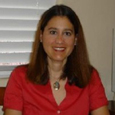 Vice Chair Vice Chair
Dana Mastro
Department of Communication
University of Arizona
Communication 317
Tucson, AZ 85721
mastro@email.arizona.edu
(520)307-0697 |
 Vice Chair-Elect Vice Chair-Elect
Jennifer Stevens Aubrey
Department of Communication
University of Missouri-Columbia
203B Switzler Hall
Columbia, MO
65211
aubreyj@missouri.edu
(573) 882-0739
|
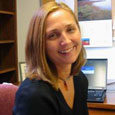 Past Chair Past Chair
Marina Krcmar
Department of Communication
Wake Forest University
PO Box 7347
Winston-Salem, NC 27109
Krcmarm@wfu.edu
(336) 758-5407 |
 Secretary Secretary
Hugh Phillips Curnutt
Montclair State University
Communication Studies
Life Hall 225A
Montclair, NJ 07043
curnutth@mail.montclair.edu
(973) 655-4464
|
 Secretary-Elect Secretary-Elect
Andrew Weaver
Indiana University
Department of Communication
Radio-TV Center, Room 306
Bloomington, IN
47405
weaveraj@indiana.edu
(812) 856-2552
|
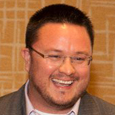 Publications & Web Editor (expires '12) Publications & Web Editor (expires '12)
Nicholas David Bowman
West Virginia University
Communication Studies
108 Armstrong Hall
Morgantown, WV 26501
Nicholas.Bowman@mail.wvu.edu
(304) 293-3905
|
 Graduate Student Rep. Graduate Student Rep.
Norma Jones
Kent State University
School of Communication Studies
135 Taylor Hall
Kent, OH 44242-0001
comm@kent.edu
(330) 672-2659 |
| Research Committee |
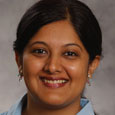 Chair Chair
Srividya Ramasubramanian
Texas A&M University
Department of Communication
211 Bolton Hall
College Station, TX 77843
srivi@tamu.edu
(979) 845-5178
|
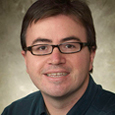 Vice-Chair Elect ('13) Vice-Chair Elect ('13)
David Rhea
Governors State University
Communication Studies
University Park, IL 60484
d-rhea@govst.edu
(708) 534-4392 |
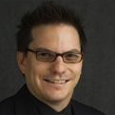 Vice Chair-Elect ('14) Vice Chair-Elect ('14)
Brent Malin
University of Pittsburgh
Department of Communication
1109L Cathedral of Learning
Pittsburgh, PA 15260
bmalin@pitt.edu
(412) 624-6798
|
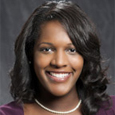 Vice-Chair Elect ('15) Vice-Chair Elect ('15)
Meghan S. Sanders
Louisiana State University
Manship School of Mass Communication
212 Hodges Hall
Baton Rouge, LA 70803
msand@lsu.edu
(225) 578-7380
|
| Nominations Committee |
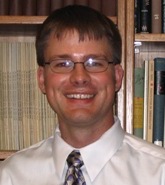 Chair (expires '12) Chair (expires '12)
Jake Jensen
University of Utah
Department of Communication
2526 LNCO
jakob.jensen@utah.edu
(801) 581-6889 |
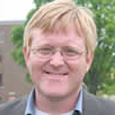 Committee (expires '12) Committee (expires '12)
Kyle Barnett
Bellarmine University
2001 Newburg Rd.
Louisville, KY 40205
kbarnett@bellarmine.edu
(502) 272-8223
|
 Committee (expires '12) Committee (expires '12)
Leslie Rill
Portland State University
Department of Communication
NH 34
Portland, Oregon 97207
lrill@pdx.edu
(503) 725-3608 |
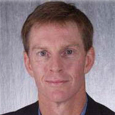 Committee (expires '13) Committee (expires '13)
Rick Busselle
Washington State University
Murrow College of Communication
214 CADD
Pullman, WA 99164-2520
busselle@wsu.edu
(509) 335-2390 |
 Committee (expires '13) Committee (expires '13)
Siobhan Smith
University of Louisville
Department of Communication
siobhan.smith@louisville.edu
(502) 852-6976 |
|
| Representatives to NCA General Assembly |
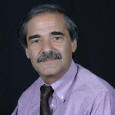 Legislative Assembly Legislative Assembly
Stan
Tickton
Norfolk State University
Mass Communication/Journalism
700 Park Ave., Unit 3249
Norfolk, Virginia 23504
stickton@nsu.edu
(757) 823-2383 |
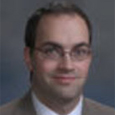 Legislative Assembly Legislative Assembly
Shane Tilton
Ohio University
Electronic Media
250 Elson Hall
Zanesville, OH 43701
(740) 453-0762 |
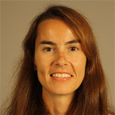 NCA Nominating Committee NCA Nominating Committee
K. Megan Hopper
Illinois State University
School of Communication
459 Fell Hall
Normal, IL 61790-4480
khopper@ilstu.edu
(309) 438-3671
|
|
|



